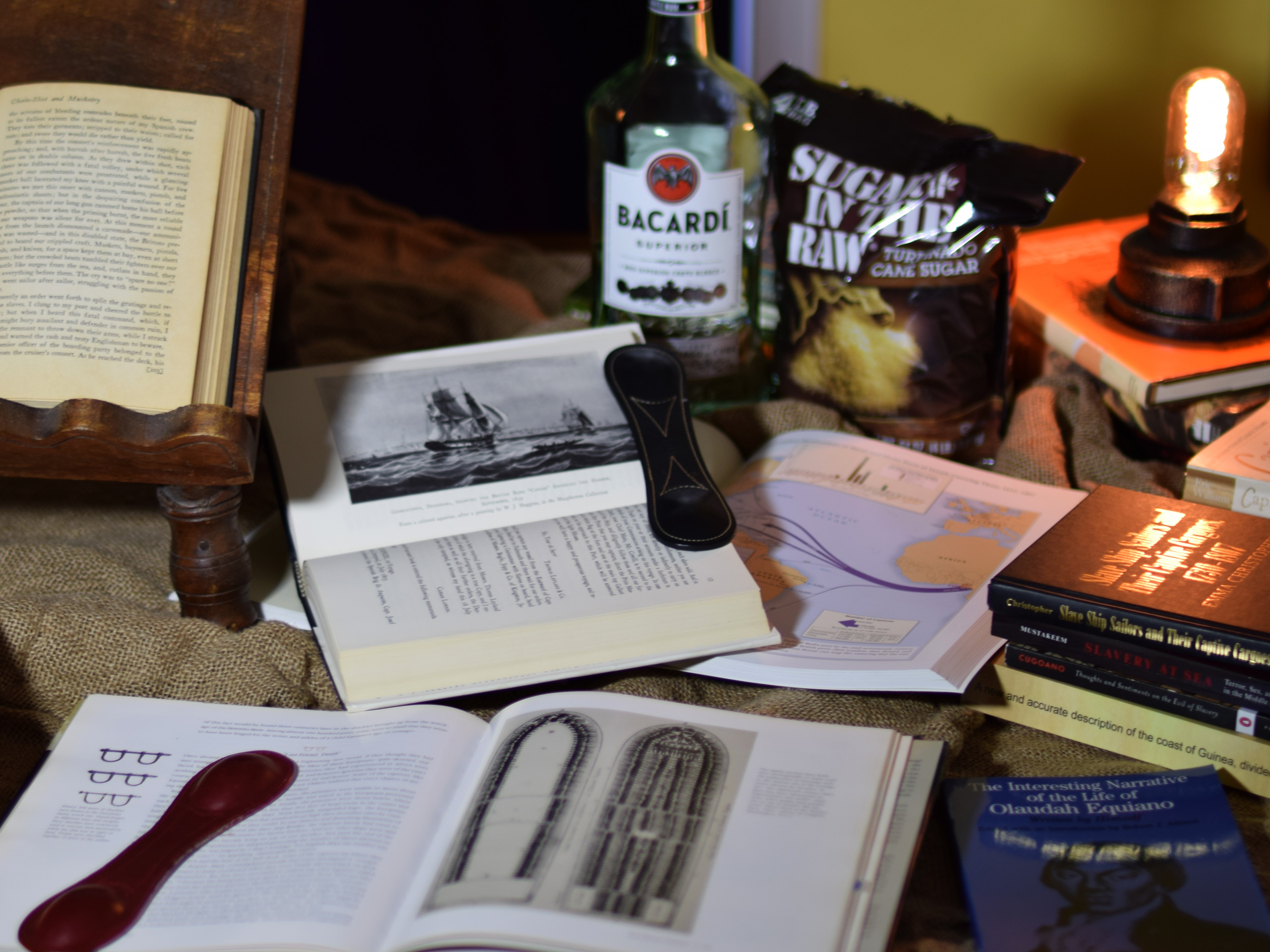VR Middle Passage Experience
Yovanna Pineda, Emily K. Johnson, Amy Larner Giroux, and Fon Gordon
Our virtual reality immersion project documents the transitional period from Africa to the Americas in a first person perspective. The ship journey from Elmina Castle in Ghana to Salvador, Bahia (Brazil) took between forty and fifty days from Luanda, Angola to Rio de Janeiro. This six to seven-week period was essential in transforming the captive’s body and mind from free to captive and their bodies trafficked across the Atlantics. In this interactive VR, participants embody a newly captured African. They are at Elmina castle where they line up with other captives as they enter the ships. Participants may interact with others while in line, though the majority of the interactive experiences take place on the ship. As a matter of survival, participants must make choices. They may do a variety of things, including winning favor by cleaning the deck, make a friend, steal food, and so on. The ship stories are based on research obtained from visual and archival materials, the database slavevoyages.org, and the numerous primary accounts from African captives, creoles, elite, ship captains, and ship logs. Though this experience deemphasizes the more graphic violence and human atrocities that were all too often a reality for the captives, the simulation remains compelling. The feeling of being trapped without hope of escape and the conditions below the deck of the ship quite effectively convey to the participant feelings of dehumanization. The project's long-term research goal is to measure empathy learning through virtual immersion and to serve as an educational experience for students learning about this topic and the history surrounding it. It is being developed in an intentional manner, utilizing isolated research studies to iterate the existing aspects and to inform each next step.
About the Artist
Yovanna Pineda, Ph.D. is an Associate Professor in the Department of History at the University of Central Florida. Her research is on the history of technology, capitalism, and the industrialization processes, and its meanings to the people who experienced it during the nineteenth and twentieth centuries. https://ucf.academia.edu/YovannaPineda
Emily K. Johnson, Ph.D. is an Assistant Professor in the Department of Games and Interactive Media at the University of Central Florida. She conducts research focusing on educational technology, simulations and learning, gameful learning, self-regulated learning, learner motivation & self-efficacy, and in-situ assessments. https://ekjphd.com/
Amy Larner Giroux, Ph.D., is Associate Director of UCF's Center for Humanities and Digital Research, where she assists faculty and graduate students with their digital projects. Dr. Giroux's research involves the contact zone between humans and technology within the intersections of history and learning. By leveraging technologies such as AR/VR, she brings learning to both classroom and field. Dr. Giroux is the author of "Navigating People, Paper, and Pixels: Examining Contact Zones With(in) the Past" in Florida Studies (2018), and co-author of "Evaluating Multi- Criteria Connection Mechanisms: A New Algorithm for Browsing Digital Archives" in Digital Scholarship in the Humanities (2017). https://tandt.cah.ucf.edu/faculty-staff/?id=1039
Fon Gordon, Ph.D., is an Associate Professor and Coordinator of the Africana Studies Program in the History Department at the University of Central Florida (UCF). Her current research agenda examines the intersection of race and American automobility. She is the author of the article, “Early Motoring in Florida: Making Car Culture and Race in the New South, 1903-1943,” Florida Historical Quarterly, 95.4 (Spring 2017), 517-537.
